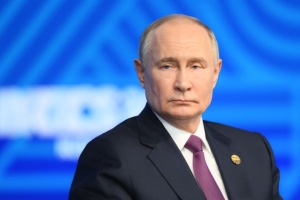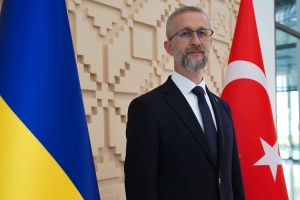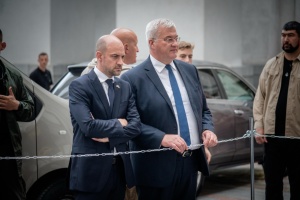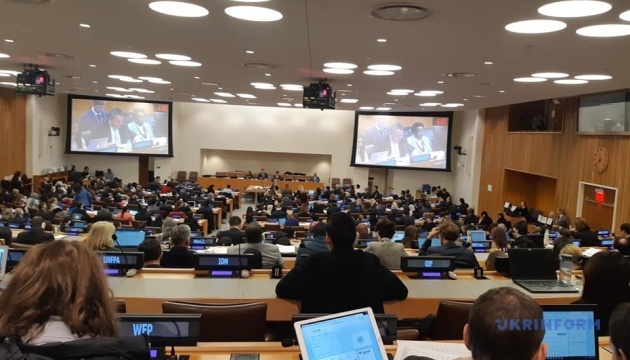
UNGA’s Third Committee approves draft resolution on Crimea with definition of ‘aggression’
As Ukrinform correspondent reported from New York, 67 members voted in favour of the draft resolution, 23 - against, 82 abstained.
The resolution was initiated by Ukraine, and about 40 world countries are the co-authors. This is the fourth UN document on human rights abuses in the occupied Crimea. Apart from the parts that repeat the previous texts, the draft resolution contains a number of new provisions. Deputy Minister of Foreign Affairs of Ukraine Serhiy Kyslytsia presented Ukraine's position.
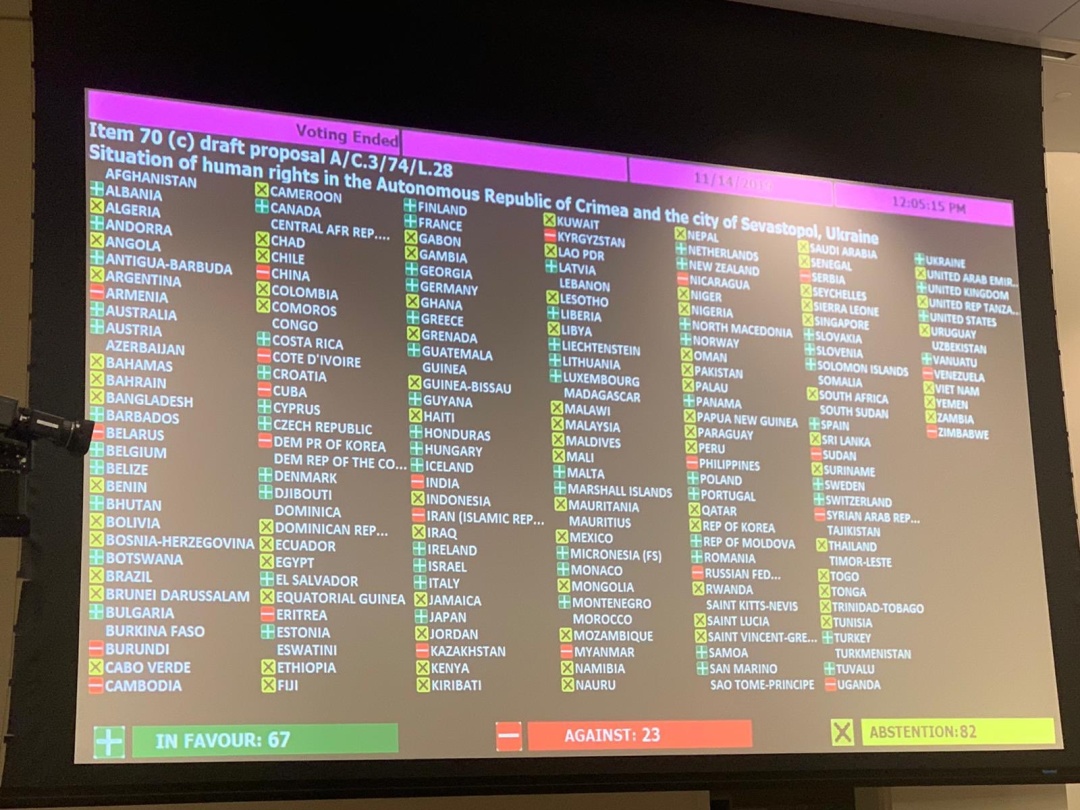
In particular, the term "aggression" is proposed for the first time to assess the situation in Crimea in accordance with the 1974 Definition of Aggression resolution. The document, in particular, states that the aggression is the use of armed force by a state against the sovereignty, territorial integrity or political independence of another state. However, no acquisition of territory or special advantage resulting from aggression is legal and can be declared legal.
The draft resolution, like the previous documents, indicates that the “seizure of Crimea by force is illegal and a violation of international law” and “those territories must be immediately returned.”
Apart from condemning torture used by Russian authorities to extract false confessions for politically motivated prosecutions, the document states the occupying power continues to affect the enjoyment of social and economic rights by residents, including children, older persons and persons with disabilities.
As in previous resolutions, the present draft condemns the violence against the residents of Crimea. At the same time, it includes new provisions, in particular that “policies and practices of the Russian Federation, which cause a continuing threat and make it impossible to reside in Crimea, and have caused the population to move out from the peninsula.”
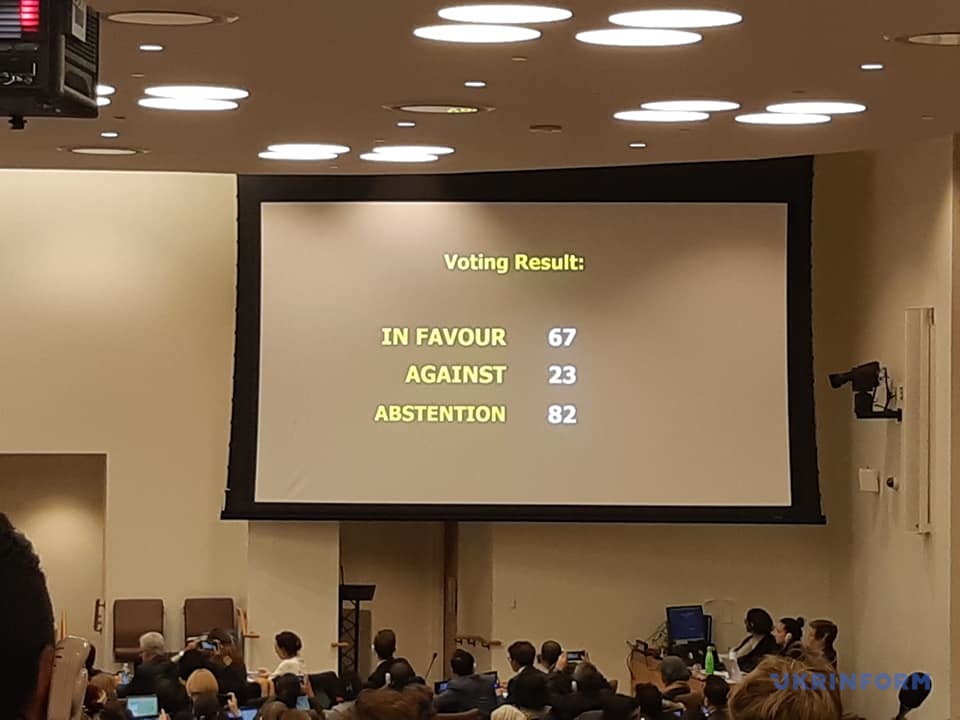
The document recalls that individual or mass forcible transfers, as well as deportations of protected persons from occupied territory to the territory of the occupying Power, or to that of any other country, occupied or not, are prohibited under international humanitarian law, regardless of their motive.
“... the Russian Federation promotes policies and conducts practices aimed at changing the demographic structure in Crimea,” the document reads.
It is noted that “that the occupying Power shall not deport or transfer parts of its own civilian population into the territory it occupies.”
The draft strongly condemns mass detentions on terrorism grounds and other forms of repressions against human rights defenders, including against activists of the Crimean Solidarity civic initiative, which documents abuses on the peninsula and provides humanitarian assistance to the families of victims of politically motivated prosecutions.
The draft resolution praises the release by the Russian Federation and Ukraine of detained persons on 7 September 2019, and calls upon the Russian Federation to release all unlawfully detained Ukrainian citizens and to ensure their safe return to Ukraine.
The document condemns all attempts by the Russian Federation to legitimize or normalize its attempted annexation of Crimea, including the automatic imposition of Russian citizenship, illegal election campaigns and change of the demographic structure of the population of Crimea.
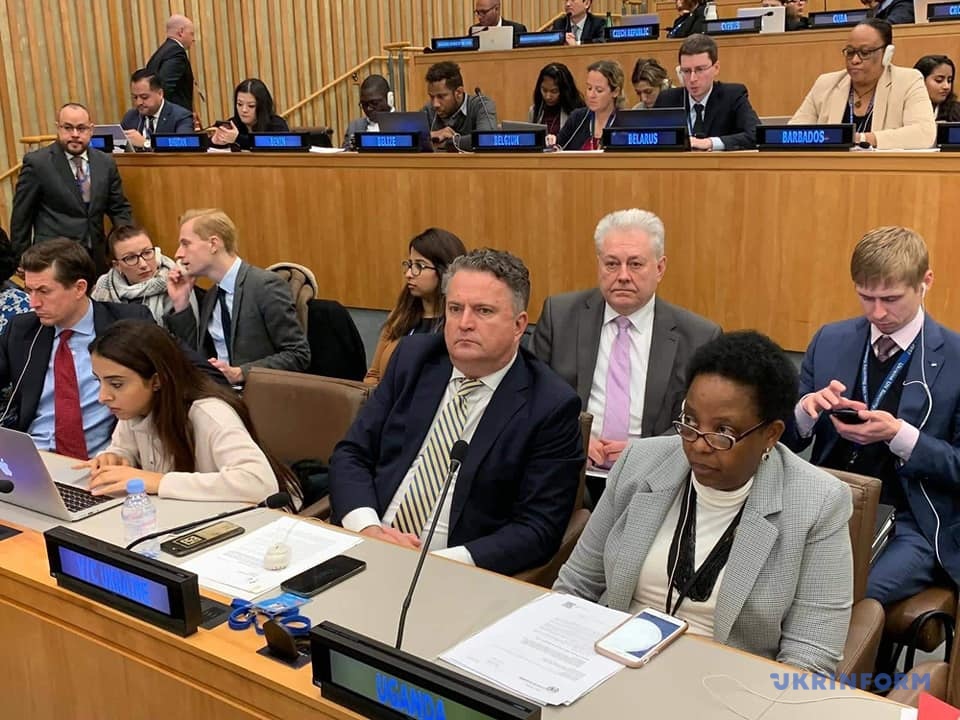
Among other things, Russia is urged to refrain from arresting or prosecuting Crimean residents for non-criminal acts committed or opinions expressed, including in social media comments or posts, before the occupation, and release all Crimean residents who have been arrested or imprisoned for such acts.
The draft resolution also requires Russia to cooperate with the OSCE Special Monitoring Mission which should have safe and unimpeded access to the entire territory of Ukraine, including the Autonomous Republic of Crimea and the city of Sevastopol.
The document calls upon Member States to continue advocacy for the respect of human rights, including by condemning human rights violations and abuses committed in Crimea at bilateral and multilateral forums.
According to the procedure, the wording of the draft resolution approved by the UNGA Committee is to be submitted for consideration to the General Assembly in December.
Earlier, the UN General Assembly adopted three resolutions on human rights violations in Crimea — in 2016, 2017 and 2018 — however Russia ignored their implementation.
The Third Committee of the UN General Assembly considers social, humanitarian and cultural issues.
ol


